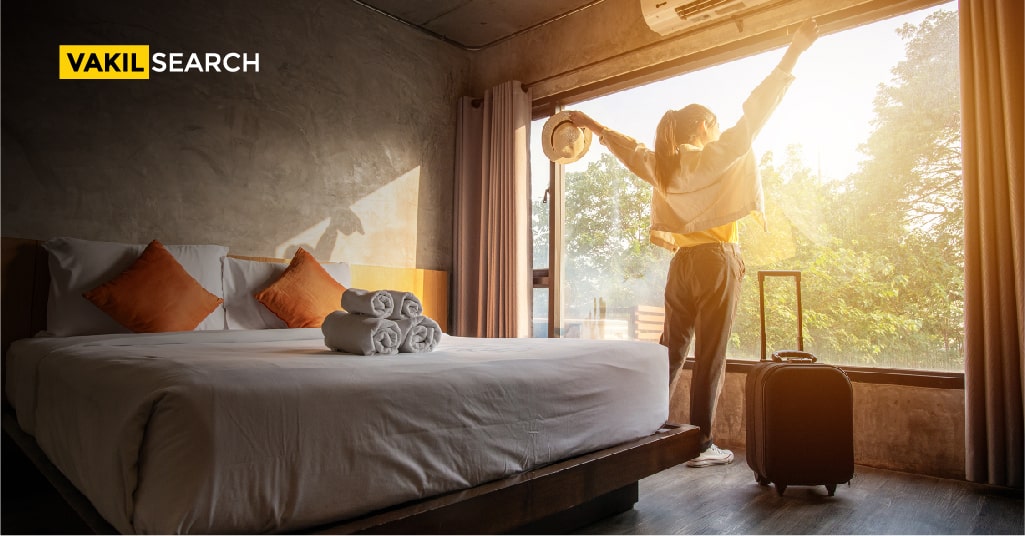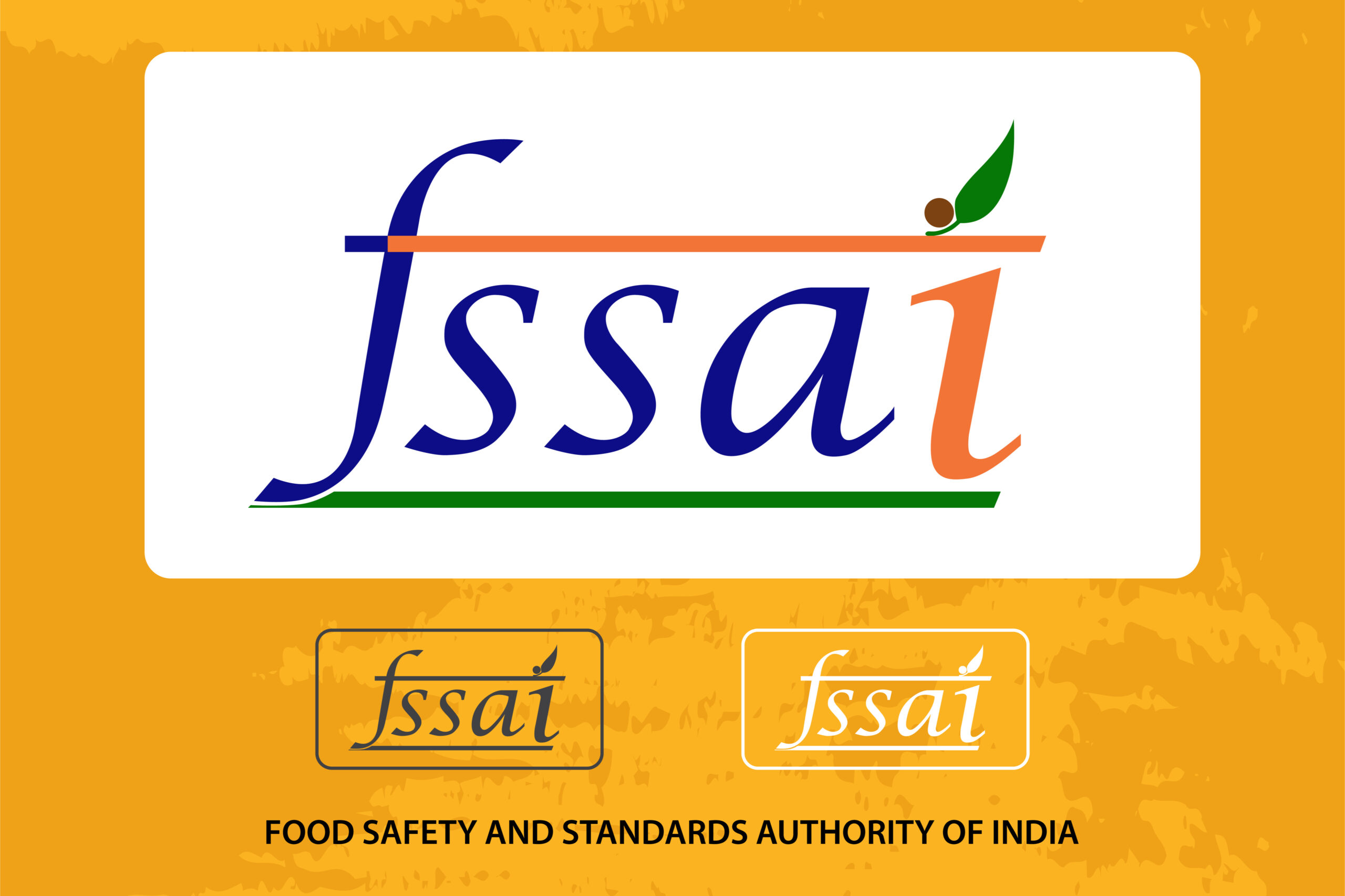The COVID-19 pandemic has hit the hospitality industry, causing several hotels to shut shop and terminate the jobs of thousands of employees. However, that doesn’t mean the hospitality industry is dead, just that it needs to work some things out.
Start A Hotel In India: Overview
Until COVID-19 hit the country, the hospitality industry was thriving all around the world. India too was no exception, with rooms getting booked months in advance. It’s not just the luxury hotels that did well; affordable boarding and lodging also garnered revenue, thanks to people taking quick weekend getaways. Know more about how to Start a Hotel In India?
While the current situation has hampered the growth of these businesses, it is always a rewarding experience to be in the hotel or Start a Hotel Business in India for that matter in the hospitality sector.
The hotel industry accounts for a $1 billion market size as of 2019. However, due to the current pandemic situation, the revenues have declined by 48% but the industry is likely to witness a boom by 2021-2022 due to various factors.
Similarly, there are few things one must understand before establishing a business and we at VakilSearch are here to help you with a start-up guide on how to start a hotel business in India.
- Understanding the business models
- Understanding the investment
- SWOT analysis
- Location and property registration
- Licences and permit knowledge
- Labour recruitment and compliances
Types of Business Models in the Hotel Industry
After a complete data analysis on the industry sector, the following business models can be listed down based on size, location, ownership, and target market.
Apart from the above-stated lists, another business model that can be a profitable option can be hotel aggregators. Similarly, a hotel aggregator is a piece of technology that searches several different hotel room suppliers for available hotel rooms and returns them in one search query. Additionally, it powers a hotel booking engine. Further, the aggregator model refers to a business approach utilised by various enterprises in the e-commerce space, wherein such businesses gather information on specific goods and services from various competing sources in the market through their online platform.
Understanding the Investment Model
A vital step in the hotel business is to understand the investment which will be required to start a business. Moreover, there are certain factors that will determine the investment required, such as size, type, location, nature of the Business Ideas, government regulations, licenses and permits required, etc.; based on the level of the amount which can be invested, the category of the hotel can be decided. Further, if financial assistance is required, loans are always an option. Normally 70% will be provided to you by banks.
Swot Analysis of the Business
The first step will be to identify the strengths, weaknesses, opportunities, and threats. Moreover, an example of strengths include the potential rise of tourist influx thanks to your hotel; weaknesses include the cost of land; opportunities, like strengths, look at the number of tourists in a tourist-heavy country like ours; while threats focus on what the competition is doing.
Identification of the Location and Property Registration:
The important step in establishing the business is to identify the location and demand in that particular location. Further, based on the demand, the size requirement can be ascertained and the location of the hotels can be determined.
Likewise, for example, if the intent is to open a mid-sized or small-sized hotel with 100 or fewer rooms: 20,000 to 50,000 sq ft. can be an appropriate land area and if the intent is to open a five-star hotel with amenities then 1,00,000 sq ft or so can be preferred. Further, another aspect to deal with is whether the hotel has to be established on an ownership basis or rental basis. Similarly, that is, whether the land has to be purchased (own premises) or rented premises because this will again affect costs during the registration and due diligence process.
Nature of ownership |
Pros |
Cons |
Legal obligations |
| Own premises |
There is no need to worry about the rent or vacating the place. Further, a sublet of the place is also an option for additional revenue. Moreover, Interest payment on land is tax-deductible. Overall control over the place |
It is harder to relocate the business and the owner will be burdened with maintenance and fixture cost |
Title verification Sale or mortgage deed |
| Rented premises | Prime property benefits with good location and high image. Ability to invest in other areas than real estate. | Annual rent with variable costs and heavy increments. | Lease deed or rent agreement. |
To register your land with us please get in touch with our experts to understand the legal obligations of the registration
List of Licenses and Permits Required
A list of licenses and registrations are necessary to obtain for beginning a hotel business in India
NOC from Ministry of Tourism
Additionally, registration and functioning of hotels in India require permission to be obtained from the Ministry of Tourism.
Premises/Building Permit
Further, All the hotels must get a proper building permit according to the relevant Town Planning or Development or Municipal Act.
Fire Safety Permit
A fire safety certificate is given to those premises which have to subsume up to the mark fire prevention and fire safety measures as per the relevant fire safety rules and regulations.
Public Performance License
This is permission or license from the copyright holder of the song or expression which is going to be used for any event organised at your hotel.
Eating House License
Additionally, an eating house license is an integral license for conducting business where any kind of food or drink is supplied for consumption legally.
Signage License
If one wants to sell your restaurant either through word of mouth, logos, posters, pictures, and symbols, they are required to obtain a legal permit, which is the signage license.
Police License for Hotel
Similarly, all the hotels must maintain proper data of all guests who are visiting the hotel. Moreover, follow all the relevant rules and regulations and sustain a valid permit from the police.
Health Trade License or Trade License
A health trade license is generally for the local health department. Further, the municipal corporation of that area issues this license. Additionally, following the equivalent hygiene and safety regulations that are necessary for health is a prerequisite for issuing a health trade license.
Business Registration: Further, it is recommended to set up a hotel for a company or LLP.
Bar License
A bar permit will be required from the applicable experts. Moreover, the bar permit is normally given by divisions working under the state government.
FSSAI Food Business License
An FSSAI nourishment business permit under the Food Safety and Standards Act is for working at an eatery in India. Further, the FoSCos FSSAI sustenance business permit typically accommodates multi-year licenses.
Shops & Establishments Act Registration:
A license under the Shops & Establishments Act should be obtained if the place of business is also used for any commercial activity in direct relation to any kind of trade that is defined under the Shops and Establishment Act of that particular state.
Certificate of Environmental Clearance
Further, the restaurant is not only responsible for ensuring the health of the customers, but they are also legally and morally bound to ensure that its operations must not negatively harm the nature of the mother earth.
Pollution Certificate: Additionally, the pollution control committee of your city or region will be responsible for providing this license or NOC to ensure that the establishment does not violate pollution norms.
Lift Clearance
Further, in case of installation of a lift in a multi-story restaurant, clearance from an inspector from the electricity department as well as the Labour Commissioner will be required. Additionally, the electrical inspector issues the clearance.
OSP Registration:
As per the New Telecom Policy (NTP) of 1999, service providers in India involved in e-commerce, call centres are termed as ‘Other Service Providers’ (OSP).
Information Technology Compliance:
The business and online platform need to be compliant with the Information Technology Act of 2000 and the underlying rules such as intermediary guidelines, data privacy rules, etc.
SARAI Act:
‘Sarai’ means any building used for the shelter and accommodation of travellers. The Act by such notice requires the keeper to register the Sarai as by this Act provided.
Labour Law Compliances:
ESI Registration
ESI is the autonomous corporation functional under the Ministry of Labour and Employment, Government of India. Similarly, registration with Employees State Insurance is necessary for business in India which hires 10 or more employees.
PF Registration
An Employee Provident Fund (PF) Registration requires any establishment that employs more than 20 persons in India. Further, the PF Board administers a contributory provident fund, pension scheme, and an insurance scheme for the workforce engaged in the organised sector in India.
Taxation Compliances
Income Tax Registration and Returns
Additionally, the income tax return is a form that is used to file the income tax with the Income Tax Department. Further, all entities will need to file their taxes on time and avoid penalties. Moreover, the form that contains information about income and tax payment by an assessee is the income tax return.
GST Registration and Returns
As per the GST law, every individual/company/LLP registered under the GST: https://www.gst.gov.in/ and the tax paid by filing form GST returns with the administrative authorities. Additionally, as a business person/ firm, one of your priorities will be to do a GST return filing
Applicable GST Rates
| Room tariff (in INR) | Applicable GST |
| <INR 1000 | NA |
| >= 1000 <2500 | 12% |
| >2500 <7500 | 18% |
| >7500 | 28% |
Professional Tax Registration
Establishment Type and Services |
GST Rate Applicable |
| At establishments with a turnover of <INR 75 lakh | 5% (Composition Scheme) |
| Moreover, non-AC restaurants not serving alcohol | 12% |
| Additionally, non-AC restaurants serving alcohol | 18% |
| Moreover, restaurants with ACs or central heating (whether serving or not serving alcohol) | 18% |
| Likewise, partly AC and partly non-AC restaurants (includes those serving and those not serving alcohol) | 18% |
| Further, AC restaurants inside 5-star hotels | 18% |
Additionally, professional tax (PT) compliances laid down by many states as being applicable to companies making payments. Further, this is to their employees working in PT applicable states.
Insurance Guidelines
The main insurances:
- Public liability – under the Public Liability Insurance Act of 1991. This insurance covers the amount which the insured becomes legally liable to pay as damages to third parties as a result of accidental death, bodily injury, loss, or damage to the property belonging to a third party
- Product liability – under this, if the product proves to be dangerous or defective and it causes injury to a person or property, then this insurance cover is just what one needs
- Fire policy – further, this policy will indemnify you against damage to your property caused by fire, lightning, or explosion.
FAQ
What are the legal requirements for starting a hotel in India?
To start a hotel in India, legal requirements include obtaining necessary licenses such as FSSAI (Food Safety and Standards Authority of India), health licenses, and fire safety approvals. Compliance with local building codes and registration with the local tourism department is also crucial.
How can I secure funding for my hotel start-up in India?
Securing funding for a hotel start-up in India can be achieved through various means. Options include traditional bank loans, venture capital, private investors, government schemes or partnerships. A well-prepared business plan is essential when seeking funding.
What key factors should I consider when selecting a location for my hotel in India?
When selecting a location for a hotel in India, factors such as proximity to tourist attractions or business districts, accessibility, local demand and competition should be considered. Assessing the target market and understanding the local hospitality industry is crucial.
What licensing and permits are necessary to operate a hotel business in India?
Operating a hotel in India requires obtaining licenses and permits like the FSSAI License, GST registration, health permits and fire safety clearances. Compliance with local municipal laws and regulations is also essential for smooth operations.
What marketing strategies can be employed to attract customers to a new hotel venture in India?
To attract customers to a new hotel in India, employ effective marketing strategies. Utilize digital marketing, social media platforms and online travel agencies. Offering promotions, collaborating with local businesses, and providing exceptional service can also enhance visibility and customer engagement.
Read More:-









